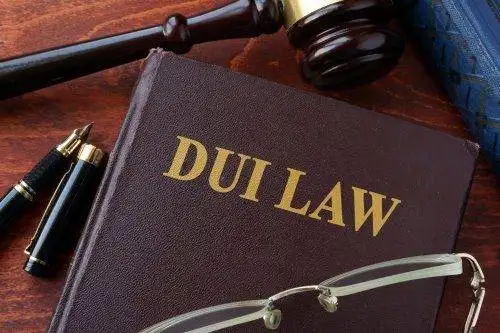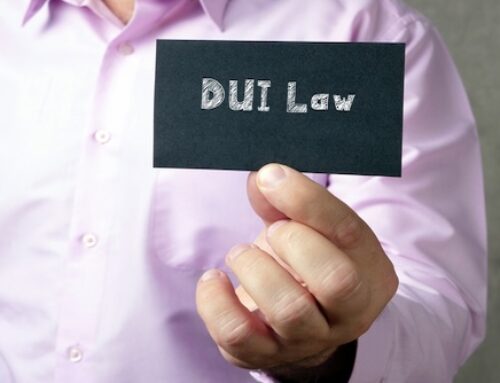If you have been charged with driving under the influence (DUI) in Arizona, you probably have many questions about your DUI case. One of these questions may be: Should you testify in your defense during your trial? Testifying in your defense might seem like a good idea. It will make it look like you don’t have anything to hide, and it will prevent the jury members from assuming that you must be guilty since you aren’t testifying. After all, if you are innocent, why wouldn’t you testify?
5 Reasons Not to Testify in Your Arizona DUI Case
While testifying at your DUI trial might seem like a good idea, there are several reasons why this might not be the case. Although testifying can be beneficial, it can also be extremely risky. For example, here are five reasons why it might not be in your best interests to testify at trial in your DUI case:
1. You Don’t Have to Testify
First, you don’t have to testify. The Fifth Amendment to the U.S. Constitution provides criminal defendants with an absolute privilege against self-incrimination, and this means that you do not have to take the stand if you choose not to do so. There are many ways to defend against an Arizona DUI charge without testifying on your behalf, and your defense attorney could have more than enough evidence to present a strong defense without putting you on the stand.
2. If You Testify, You Must Submit to Cross-Examination
If you choose to testify, your attorney isn’t the only one who will have the opportunity to question you on the witness stand. The prosecution will have the opportunity to question you as well. This is known as a “cross-examination.” During your cross-examination, prosecutors will try to get you to admit facts that support a conviction. They will try to get you to contradict yourself to show that your testimony is unreliable. While the privilege against self-incrimination still applies, it won’t look good if you answer your attorney’s questions and then refuse to answer questions from the attorneys on the other side of the aisle. Also, in Arizona, jurors may ask questions of witnesses.
3. Your Testimony Might Not Go as Planned
If you decide to testify at your DUI trial, you can – and should – thoroughly prepare in advance with your attorney. But, even with extensive preparation, your trial testimony still might not go as planned. You might get flustered or appear nervous, and, as discussed above, you might falter during the prosecution’s cross-examination. If any of these unplanned events happen, your decision to testify could backfire, and you could end up doing more harm than good.
4. The Jury Might Not Believe You
Even if you are 100% honest on the witness stand (which you should be), the jury still might not believe you. If you seem dishonest, evasive, or like you aren’t telling the whole truth, jury members might decide that you are not a credible witness. This could especially be the case if the prosecution presents your arresting officer as a witness, and he or she makes statements that are contradictory to yours. Unfortunately, many jurors also have a bias against criminal defendants, and they will assume that you are lying to try to keep yourself out of jail.
5. Your Own Words Could Land You in Jail
If you make mistakes on the witness stand, your own words could land you in jail. For many people, this is not a risk they are willing to take. If your attorney can present a solid defense without relying on your testimony, then it might make sense to stay out of the witness chair and let your attorney do the talking.
Should You Ever Testify in Your Own Defense During a DUI Case?
Due to the risks involved with testifying, does it ever make sense to testify in your defense during a DUI case? Yes, in some circumstances, testifying on your behalf can be a highly effective defense strategy. For example, it may make sense to testify in your Arizona DUI case if:
- You made a self-incriminating statement during or after your DUI arrest. If you confessed or made a self-incriminating statement during or after your arrest, then taking the stand may allow you to set the record straight. Were you confused? Did you assume what the law disallows? Were you unaware of facts that are relevant to your DUI case? These are all issues that can potentially be addressed by providing testimony at trial.
- Your belief matters. If you made a self-incriminating statement, one possible defense strategy might be to argue that the police failed to read your Miranda timely. If you confessed under circumstances in which you did not believe that you were free to leave, then it is possible that your confession could be inadmissible. But, to prove your belief, you may need to testify in court.
- It’s your word against the arresting officer’s word. In some cases, the prosecution’s best (or only) evidence will be the arresting officer’s testimony. If this is the case with your DUI, then introducing your own clarifying or contradictory testimony could effectively cast doubt in the jurors’ minds.
These are just examples, and testifying in your defense will not always (or even often) help to overcome these types of issues. Deciding whether you should testify in your DUI case requires a thorough assessment of all relevant factors. It is a decision that you should make based on an experienced Phoenix DUI lawyer’s advice.
Request a Free DUI Defense Consultation in Phoenix or Tempe, AZ
Are you facing a DUI charge in Phoenix or Tempe, AZ? If so, we encourage you to speak with one of our DUI attorneys about your defense. For a free, no-obligation consultation at The Weingart Firm, call 480-405-7922 or request an appointment online now.






